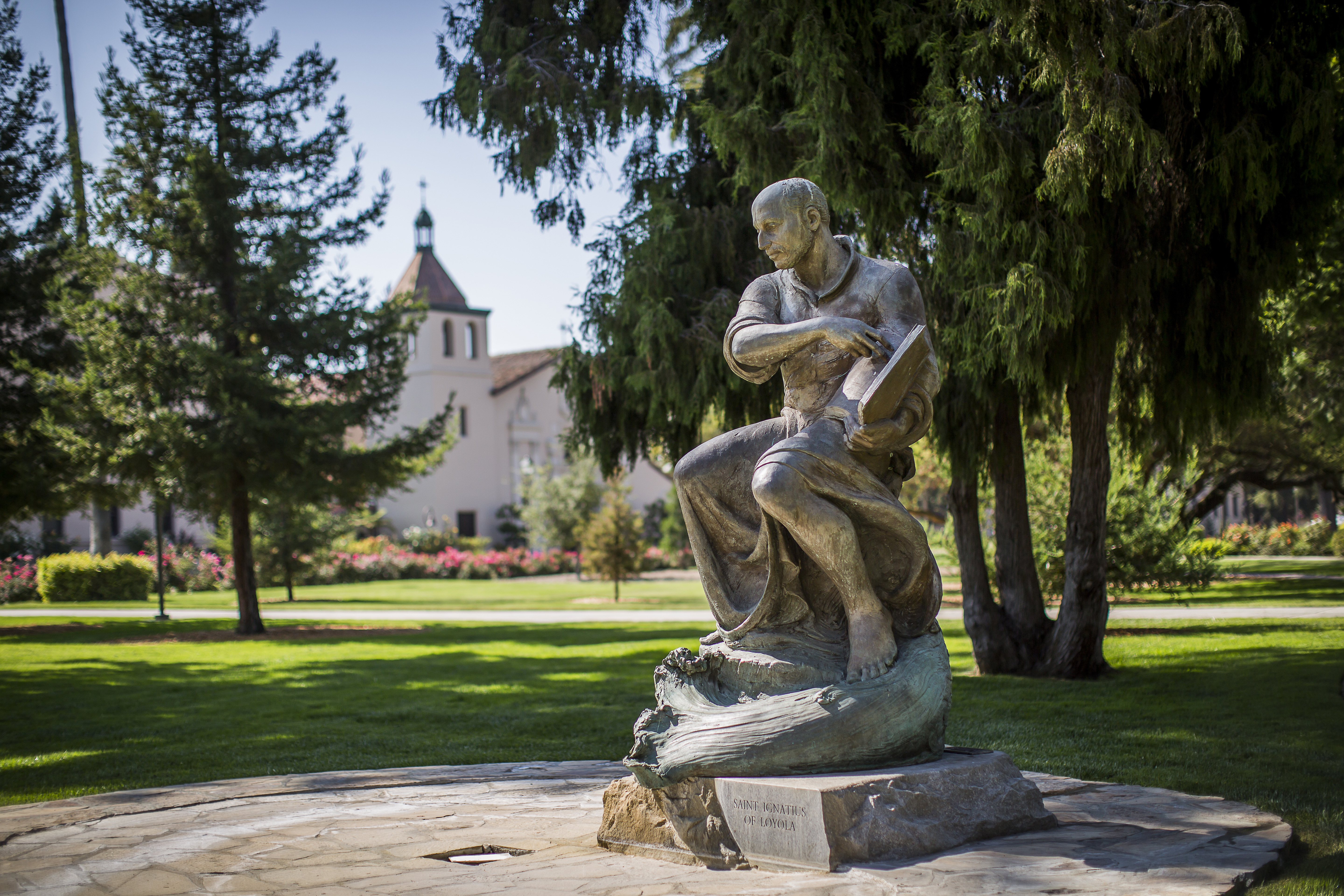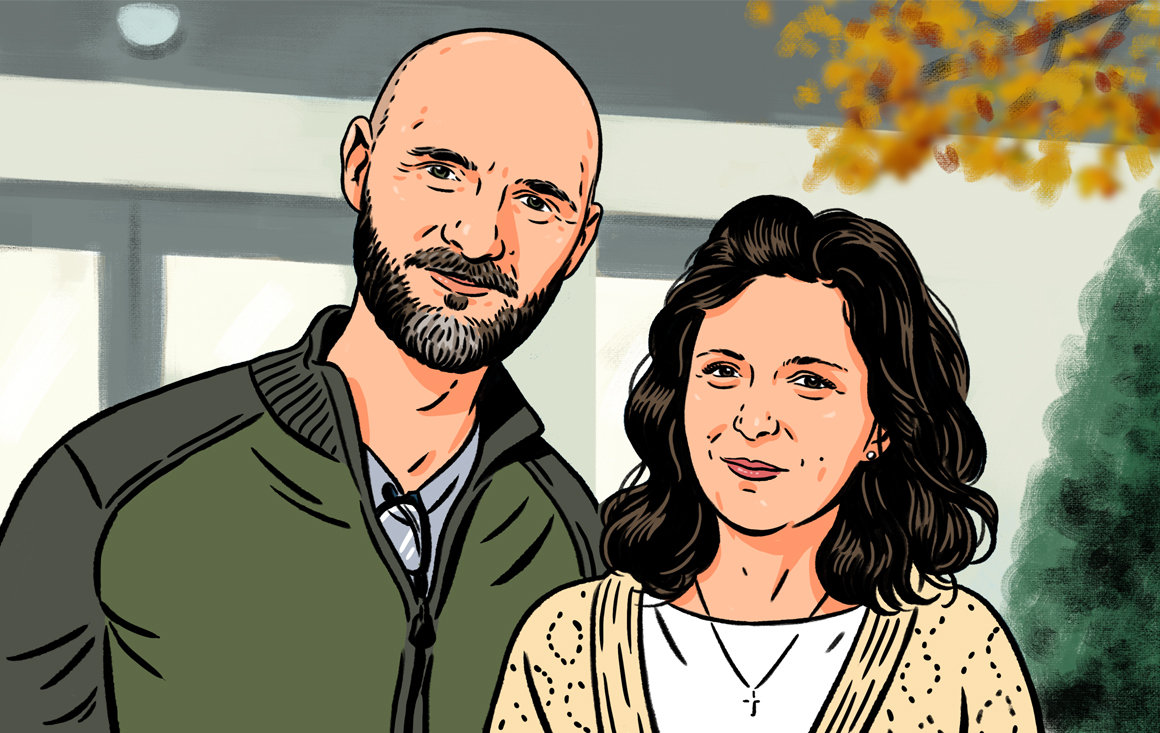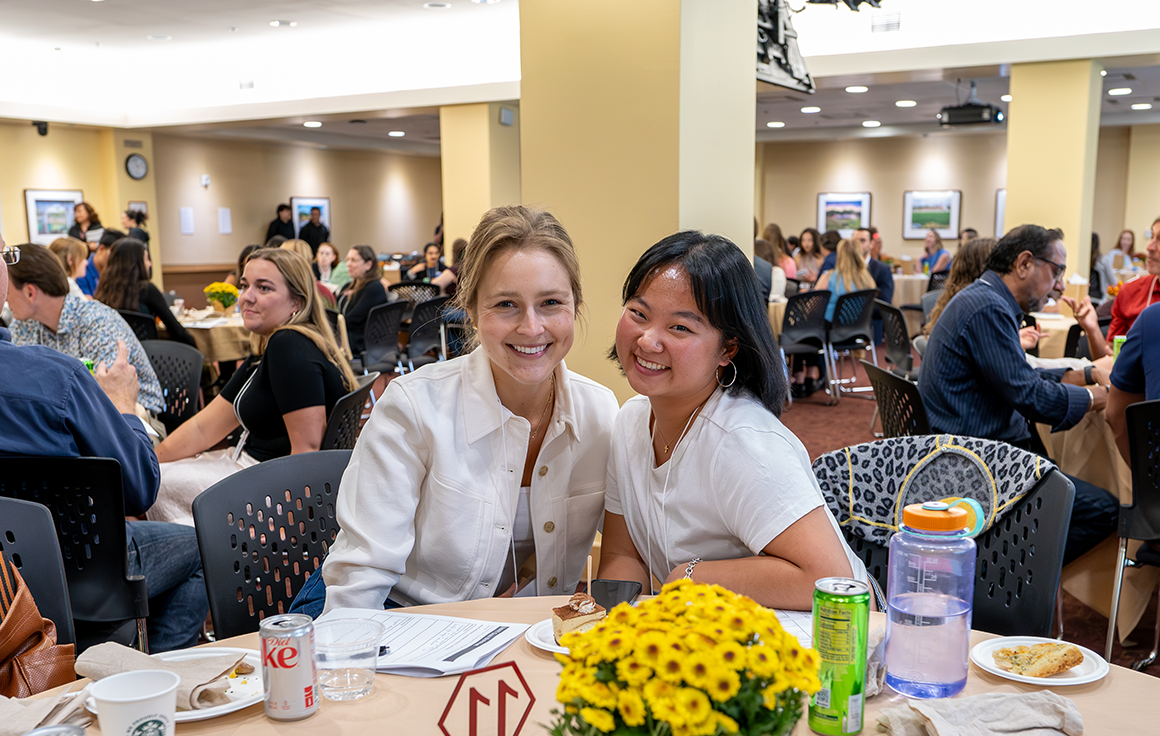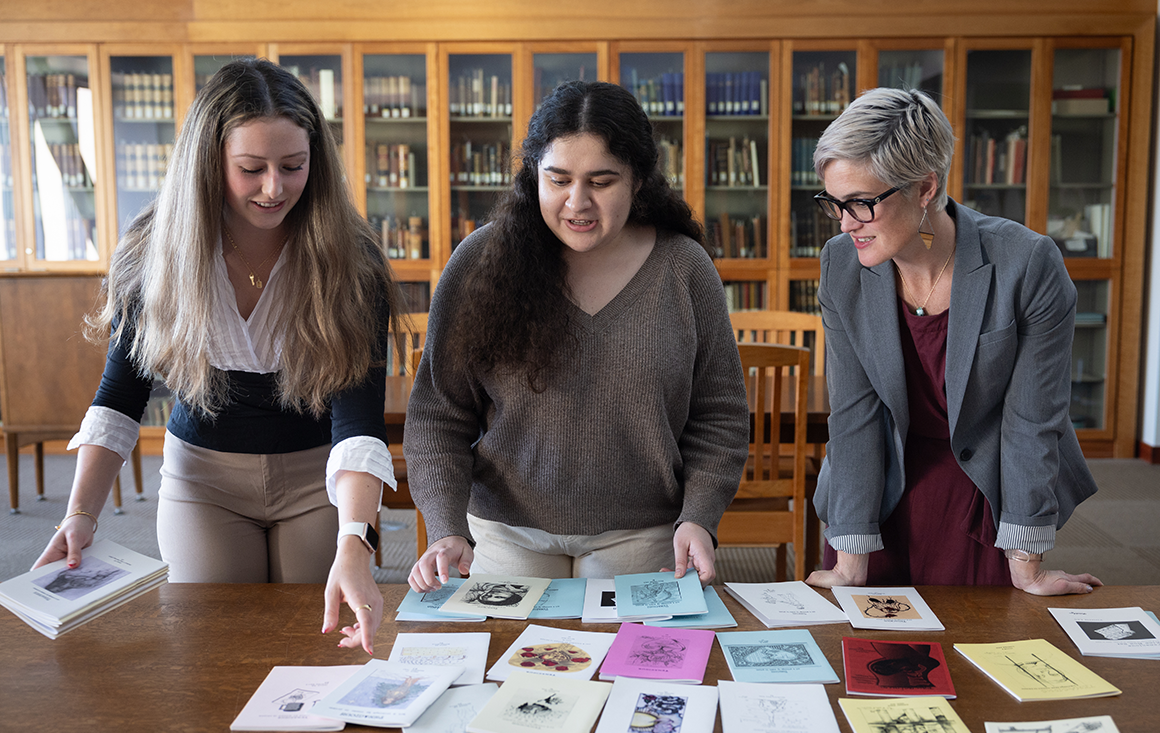Many Voices, One Community

In 2007, ethnic tensions erupted across Kenya after a disputed election. Months of protests, massacres, and police violence left over a thousand people dead and hundreds of thousands displaced.
Witnessing this climate of chaos and fear, Agbonkhianmeghe E. Orobator, S.J., his fellow Jesuits, and their students at Hekima University College felt called to take action, distributing cards across Nairobi with St. Francis’ prayer: “Lord, make me an instrument of your peace.”
It was a simple message, but it made a real impact, reaching the floor of the Kenyan parliament, and years later, inspiring leaders working on the South Sudan peace process.
“When it comes to dealing with conflict, we cannot resolve a crisis by creating another crisis,” Fr. Orobator, now the dean of Santa Clara University’s Jesuit School of Theology recalls. “This experience showed me that all of us can do something, and if we are creative, intentional, and constructive, something that might seem small can become transformative.”
Today, this hope for peace resonates at SCU as many students, faculty, staff, and alumni continue to grapple with the violence and sorrow surrounding the ongoing Israel/Hamas war.
Over the last few months, President Julie Sullivan and other key administrators have worked closely with the Jewish Student Union (JSU), the Muslim Student Association (MSA), and the Middle Eastern and North African Club (MENA) to ensure that SCU remains committed to the safety and belonging of all students, faculty, and staff during this painful time.
From prayer vigils to community conversations and educational resources, Sullivan’s priority has been fostering university spaces rooted in intentionality, compassion, and listening.
“This is our home,” she says. “And in our home, we are committed to the caring and accompaniment of every person in our community, no matter our differences.”
Starting with education and empathy
When Shá Duncan Smith, the vice president of the Inclusive Excellence Division, looks at SCU’s student body, she sees future lawyers, business owners, scientists, political representatives, activists, teachers, and doctors.
“Our institution is an incubator for the leaders and global citizens who will make a difference in the world,” she explains. “But part of leading is serving, and you can’t do that without being educated and empathetic.”
Since the war began, the Department of Political Science and the School of Law have hosted panel discussions with faculty experts from different disciplines and perspectives. These events are not just lectures but places for the community to engage with and examine the history and context of the larger Israel/Palestine conflict.
The Inclusive Excellence Division has also collaborated with JSU, MENA, and other student groups to curate a new library resource guide to help people educate themselves about this complex conflict from a diverse range of sources and perspectives.
Additionally, the University has created spaces for more personal conversations where students, faculty, and staff can share their feelings on the violence they are witnessing, bringing their whole selves—including their life experiences and perspectives—and knowing they will be respected and taken care of in mind, body, and spirit.
While we may not always agree with each other’s perspectives, Alison Benders, the vice president of Mission & Ministry, believes that taking the time to understand each other is a powerful act in and of itself. To her, practicing empathy goes hand-in-hand with other forms of civic action, like writing Congressional representatives or fundraising for humanitarian relief efforts.
“Empathy is the root of human relationships because it enables us to be generous to others, to be understanding, and to connect,” she explains. “I absolutely believe that the world is transformed through big gestures, but sometimes it’s through the little gestures too. While I may feel powerless to change this war, I do have the power to express my empathy.”
Building bridges—together
As the Israel/Hamas war continues, so will Santa Clara’s commitment to peace through empathy and education.
“At the end of the day, Santa Clara University isn’t a political entity—our focus isn’t on statements, it’s on serving our students,” Sullivan explains. “Our role as administrators is to provide resources and safe spaces for unfettered intellectual inquiry that welcomes and encourages constructive dialogue.”
To that end, Duncan Smith, Benders, and vice president of Human Resources, Zenobia Lane, have aligned their efforts so everyone in our campus community has access to these resources and opportunities.
For example, community members are invited to offer feedback and new recommendations for the library’s Israel/Palestine resource guide and the Division of Inclusive Excellence has announced that micro-grants of up to $1500 will be available to develop new programming around this crisis. Since February, five faculty members have already received funding for forthcoming events that will continue into Fall 2024.
As our campus community processes this emotionally charged conflict, inclusion and safety remain paramount. SCU was recently accepted in Hillel International’s 10-month Campus Climate Initiative to foster greater inclusion for Jewish students and all students. Meanwhile, the Inclusive Excellence Division, Mission & Ministry, and Human Resources have hosted four additional community conversations for students, faculty, and staff with facilitators asking participants two essential questions: how are you feeling, and how can we help?
“We really want to hear from folks around campus,” explains Duncan Smith. “For us, the approach isn’t ‘if you build it, they will come.’ No, we have to build this together.”
Sullivan believes that Santa Clara’s collaborative, community-driven approach has especially resonated with students looking to turn their grief into action.
“I’ve always felt that college is the only time in your adult life that you are going to have the resources and time to really invest in yourself as a human being. I think being at Santa Clara specifically will help during this crisis not only by helping students develop their knowledge, but also their empathy, compassion, and capacity to be a conscientious, compassionate, and competent person in this world.”
There are many ways to stay engaged during this crisis. To suggest future events and resources, contact inclusiveexcellence@scu.edu.
-
Learn and listen
Participate in an upcoming Community Conversation with fellow students, faculty, and staff. These will be held via Zoom on May 9th, 12-1 p.m. and May 22nd, 3-4 pm.
Explore the University Library’s Resource Guide. Want to suggest new additions? Email libraryreference@scu.edu.
Do you have an idea for an educational event or program? Apply for an Inclusive Excellence Division micro-grant (up to $1500) to deepen our campus’ understanding of this conflict -
Seek care for yourself
Mental health support is available from CAPS 24/7 at (408) 554-5220. There are also interfaith resources and spiritual support available through Campus Ministry—contact Elizabeth Rand for more information. -
Connect with others
Find community through the Jewish Student Union, the Muslim Student Association, the Middle Eastern and North African Club, the Multicultural Center, Hillel of Silicon Valley, or the South Bay Islamic Association.


